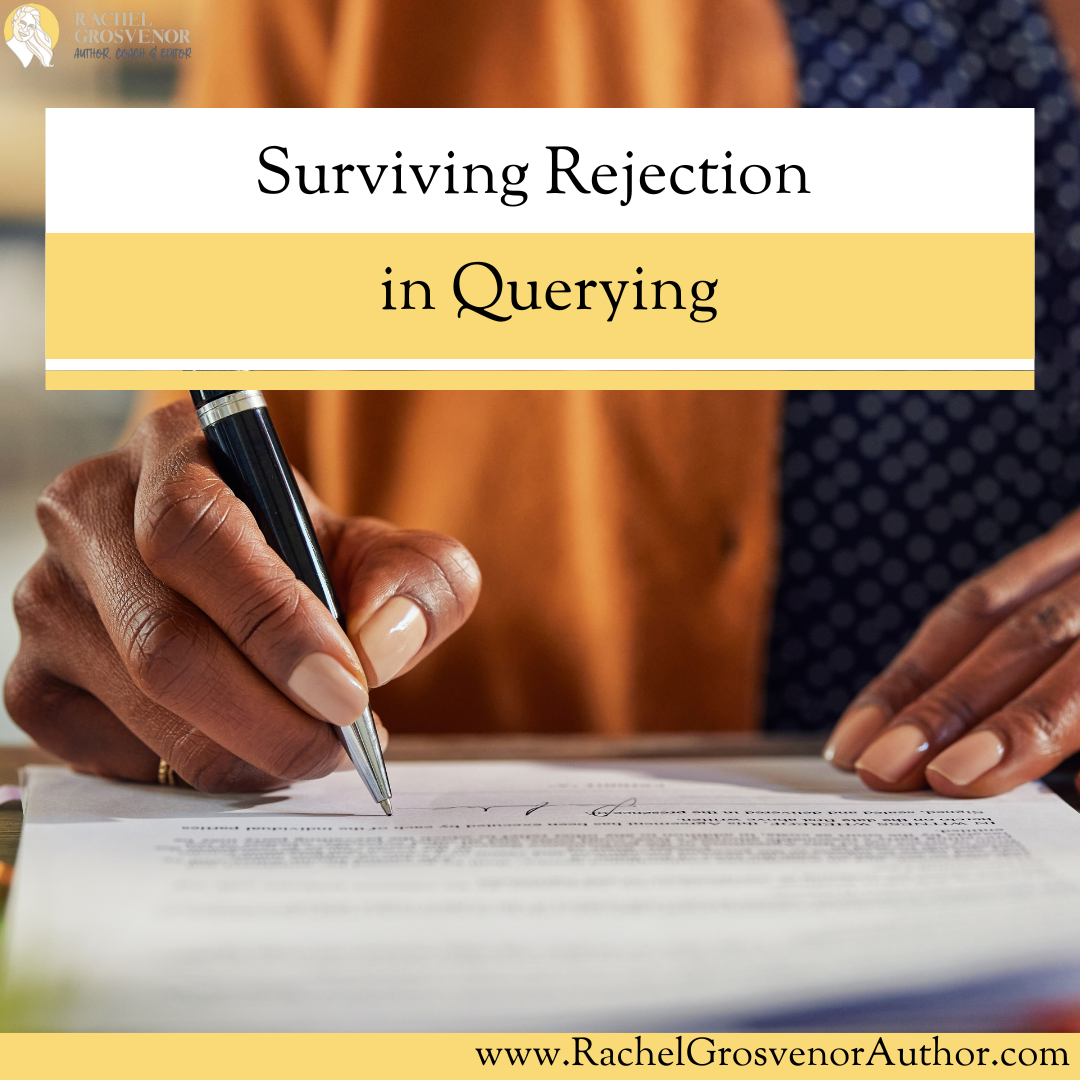Struggling with rejection in the querying trenches?
Let’s talk about it.
Querying is a tough process for most. You’ve written your novel, edited, created a query package, and found the agents and publishers you would love to work with. Now what? The waiting, the ongoing research, and, more often than not, the rejection.
So, how can you survive this? It’s time to talk about what is in your control and what is out of it.
Here’s what’s out of your control:
The stats: First of all, let’s chat about that 1-2% industry average figure of accepted manuscripts. This is a generally agreed-upon figure by agents and publishers. However, we must bear in mind the equality of this, as not all manuscripts sent in are ready. Once the manuscripts that are ready are found, they are considered. That’s roughly 5% of the total received. 1% go on to be accepted. You cannot control this statistic or the fact that the publishing industry is highly competitive. Worrying about how you can control this is not going to move you forward, but taking advantage of what is in your control, will.
The unknown: Sending off your work and waiting to hear can be tough. It’s hard not to allow your brain to fill in those gaps of the unknown, whether you’re thinking ‘It’s been six months, they hated it,’ or ‘It’s been six months, maybe they will still say yes.’ Neither thought is helpful, as both are relying on an imagined outcome. Instead, focus on what you do know. You know that you have control over some elements of this.
Subjective opinion: If someone rejects your work, that’s up to them. It’s the same with reader reviews! Not all books are for all people, and not all stories are for this season. Separate yourself from your work, because the opinion is not about you personally.
Other authors’ success: You will see that other authors are signing with agents or publishers online. Remember that you aren’t seeing the wobbles, the late nights, the hard work. Their success is not related to your journey, aside from being proof that it is possible. Celebrating them will not remove anything from your effort or story. If anything, it will make others shout louder for you if your time comes.
Here’s what’s in your control:
The quality of your work: You are 100% in charge of the quality of your writing. You can hire an editor and a coach, but your work is still your own, and you are responsible for rewrites, making your words shine, and ensuring that your best stuff is being put forward. If you feel like you’re not getting anywhere with querying, be bold: Review your work. Question your word choices. Sharpen and tweak.
Taking a break: There is no deadline on getting your work out there. Take me as an example! I’ve had my third novel out this year, but I began my first creative writing degree twenty years ago. And even then, it took over eight years of querying, tweaking, coaching, editing, and working on the craft to get my debut out there. You are not in a race. If you need a break, take one.
Self-talk: How you speak to yourself matters. Treat yourself as you would treat a loved one. Be kind, enthusiastic, and supportive.
Craft education: It never ends! Read craft books and ask yourself how your work can be improved. Keep writing new novels, ideas, stories, while you are querying. Don’t wait around for a positive response, work on the next novel. Not only will you improve your writing, but you’ll find the distraction is exactly what gets you through a querying slump.
Found this helpful? I hope so! Check out similar reads here:


